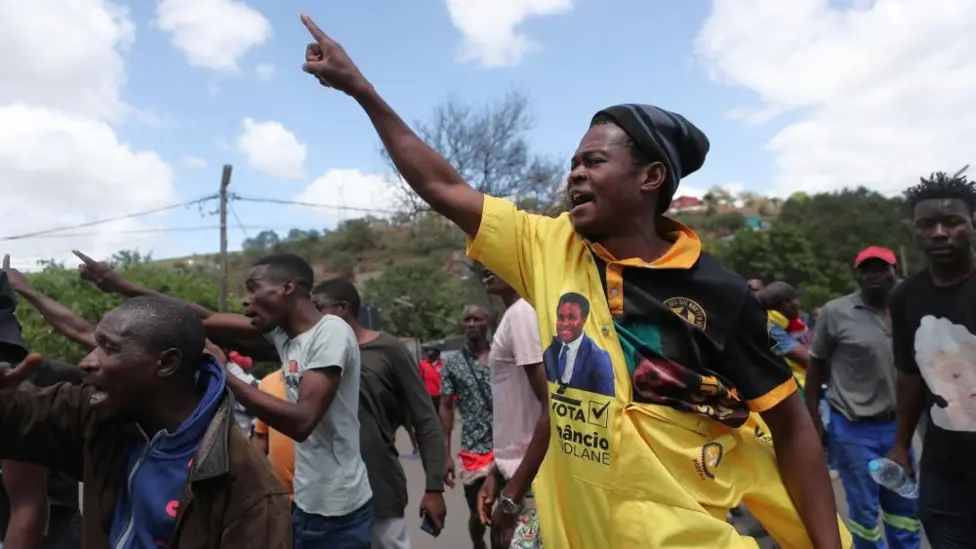MAPUTO – Mozambique’s government has banned protests following sustained post-election unrest that has left several people dead and dozens others injured.
It follows last month’s disputed presidential election, won by Frelimo, the party which has governed Mozambique since 1975.
The weeks-long protests have led to violent clashes with the police and at least 18 people have been killed, according to Human Rights Watch.
Interior Minister Pascoal Ronda has urged Mozambicans to co-operate with the authorities to stop the protests, terming them “acts of terrorism”.
Demonstrations started at the end last month in the capital, Maputo, after Daniel Chapo, the Frelimo candidate, was officially declared the winner with more than 71% of the vote.
Opposition leader Venâncio Mondlane, who came second with 20% of the vote, went into hiding before the results were announced.
He cited fears for his safety after his aide and lawyer were killed as they were preparing to challenge the results.
Last week, soldiers were deployed to help keep order during Thursday’s post-election protests, the biggest since the unrest started on 9 October.
Police fired tear gas and rubber bullets to disperse thousands of protesters who lit fires and barricaded roads in Maputo.
Ronda has said that the protests have now been “forbidden” because of their “severity”.
“I no longer call these protests, I call them acts of subversion and terrorism because they terrorise people and children. That woman selling bananas can no longer sell them. People can’t go to work; this is terror,” said Ronda.
The interior minister accused protest organisers of using “drugged” youth to “destabilise” the country, saying their plans would not succeed, as “crime will be fought”.
Some rights groups have put the death toll at more than 30 overall.
A South African TV station has said two of its journalists who were covering the unrest in Maputo have been detained in unclear circumstances.
News Central TV in a statement, external said attempts to establish communication with the journalists have been unsuccessful since their arrest.
“The detention of our colleagues while performing their professional duties is deeply concerning,” it said, adding that “we are working through all available diplomatic and official channels to secure their immediate release.”
The authorities have restricted access to internet across the country in what Human Rights Watch said was an attempt to “suppress peaceful protests and public criticism of the government”.
Opposition groups and observers argued that last month’s elections were unfair and rigged, a claim that the government deny.
Current President Filipe Nyusi is stepping down after serving the two terms allowed under the constitution.
















